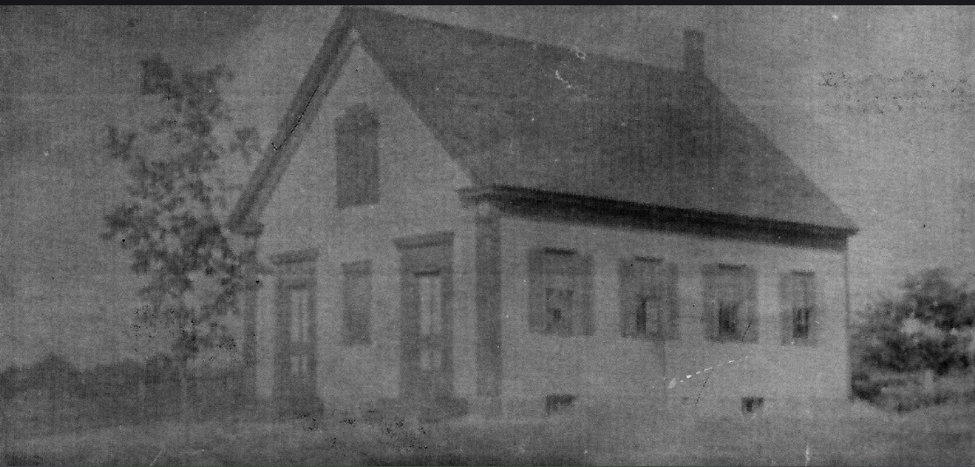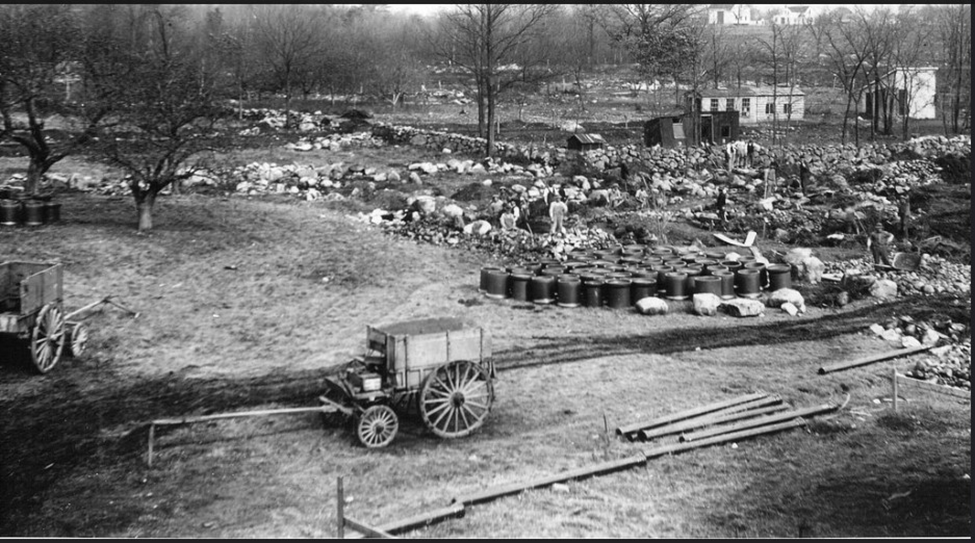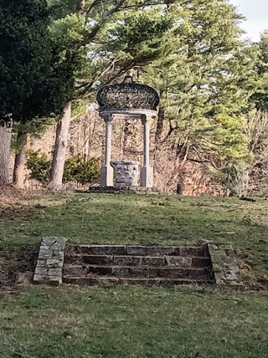|
Easton has a little known, but highly respected, author in its past. He once resided at 261 Purchase Street at a farm known as Glen Easton and later as Maplewood Farm. In 2016 Barnes & Noble issued a special reprint of James Rankin’s “Artificial and Natural Duck Culture”. The original was printed in 1906 and sold for 50 cents. Reprint of James Rankin’s book, 2016. “……this classic text introduces us to the basics of raising ducks, be it for pleasure, exhibition, egg production or meat purposes. Included are details on the major duck breeds, as well as how to raise and breed them for eggs or meat. Included are sections on housing, feeding, incubation of duck eggs, brooding and care of ducklings and more. Of particular focus is the management of ducks specifically for meat purposes, including how to dress them.” Barnes & Noble 2016 Original book, 1906, 50 cents. James Rankin was born in Glasgow Scotland in 1830 and died in Easton in 1914. He was known as ‘The Father of the Pekin Duck Industry in America’ and his expertise was well-recognized. After buying the run-down Deacon Reed farm in 1874, Rankin began improving the property. In a letter to Chaffin, Rankin said that he “had bought the place for its possibilities.” By about 1876 he was well-known as an inventor and manufacturer of an innovative incubator for duck eggs, which he eventually patented. Every day a wagonload of Rankin’s ducks would be shipped via the Easton Center railroad to locations all over the United States. Rankin’s Monarch incubator worked equally well on chickens, geese, and turkeys; his hatch rate was never less than 90%. By 1891 he was hatching 4,000 to 5,000 chicks, which he sold as broilers and by 1906 he was raising 25,000 to 30,000 ducks per year. Original house, Maplewood Farm, now Easton Country Club, old pic. In 1908 Rankin sold his farm to Ezra Pratt. In 1914 Frederick Lothrop Ames II bought the farm and housed his prize-winning Clydesdales there. In 1923 Frederick’s widow sold the farm to Producer’s Dairy of Brockton. In 1945/1951(?) the farm was sold to Samuel Joseph and Mary C. Lombardi of Rhode Island. Initially managed as a dairy farm, in 1961 they began construction of a nine-hole golf course, today known as the Easton Country Club. Today Easton Country Club is a beautifully maintained eighteen-hole golf course. Today, Rankin’s advice is still sought out by members of the poultry community. The book’s content is available as an eBook at no cost through Project Gutenberg, www.gutenberg.org. 261 Purchase Street. Rankin house. Built in 1880.
Anne Wooster Drury [email protected] Sources: Easton Historical Commission Easton Historical Society History of Easton, Chaffin, 1886 Easton Country Club website
0 Comments
A recent open house (July 16) at the Museum showcased agricultural implements manufactured by the Ames Plow Company. The Ames Plow Company was a later incarnation of the Ruggles, Norse & Mason Company, established prior to 1835 in Shrewsbury, Mass. Over time the company grew and took over a space at Quincy Hall in Boston. In 1861 the existing partners were succeeded by Oliver Ames & Sons. Items advertised in their catalogue included carts, wagons, trucks, wheelbarrows, contractors’ supplies, and ice tools. In 1866, a branch was incorporated at 53 Beekman Street in New York City. In 1874, a large new factory was built in Worcester, Mass. The firm was related to the Ames Shovel Company, also known as Ames Tool Company. One of the implements displayed at the EHS&M is a corn sheller. It removes the grain from dry ears of corn; the kernels fall into a bucket underneath the device. The corn can be fed to livestock or used for other purposes. It was very popular in New England. Corn shellers come in different sizes. Found in a barn on Lincoln Street in North Easton, the Lawn Hand Cart shown below was restored at Southeastern Regional School and has been returned to its original appearance. It was manufactured in two sizes and came with flaring sides and wide tires. Lawn Hand-Cart. A Fan-Mill produced by the Ames Plow Company. Three models were The Boston Fan-Mill, The Improved Worcester Fan-Mill, and The Grant Fan-Mill. The Company also made fan-mills to sort coffee.
A Fan-Mill cleans grains and small seeds. It is an early farm machine, separating the grain from the chaff and straw with a breeze. The fan is hand-cranked and blows grain and chaff across vibrating screens. According to Chaffin, in 1865 there were 91 farms in Easton. Grown were: Indian corn, wheat, rye, barley, buckwheat, oats, potatoes, English mowing hay, English hay, wet meadow hay, turnips, other vegetables, apple trees, and more. Livestock included: sheep, horses, oxen, steer, milch cows, heifers, goats. Take-aways- It wasn’t all that long ago that farming in Easton was common and much more labor intensive. These farming machines (Ames Plow Company) were all used by farmers in Easton to get their work done. And although the Ames family was known for manufacturing shovels, they were also involved in various other related enterprises. All photos by Jon Coe. Anne Wooster Drury [email protected] |
Author
Anne Wooster Drury Archives
June 2024
Categories |
Easton Historical Society and Museum
PO Box 3
80 Mechanic Street
North Easton, MA 02356
Tel: 508-238-7774
[email protected]




